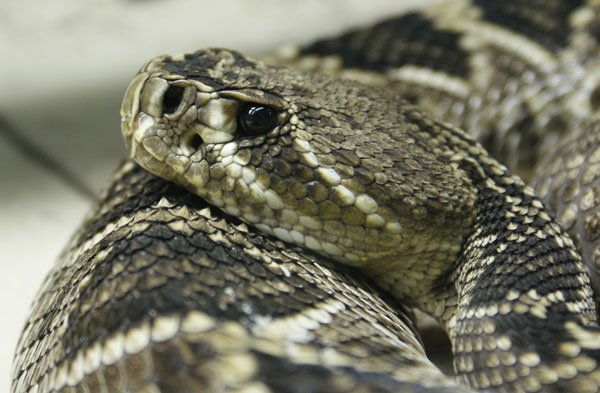- South Texas Students Meet Accordion Music Icons Los Tigres Del Norte In Edinburg Thanks To Khs America/Hohner Alianza Académica Initiative
- Fragile Planet Offers a Nighttime Wildlife Experience
- Falcons Soccer Off & Running
- Cameron County Receives Funds to Improve Two Parks
- Falcons Complete First Half of 32-6A
- School District to Help out Victims of California Wildfires
- Sand Castle Days Continued Despite Unexpected Weather
- Ready for District
- Discussion of Garbage Dumpster Rates, Agreements Between State & City on Highway Regulations, and More
- 31st Annual Shrimp Cook-Off is Right Around the Corner
Group Seeks to Halt Rattlesnake Slaughter at Roundups
- Updated: March 25, 2016

The conservation group Advocates for Snake Preservation is trying to stop the mass killing of rattlesnakes at roundup festivals each spring across the South and Southwest. Photo: Wikimedia Commons
by Mark Richardson
SWEETWATER, Texas – A group of conservation biologists is working to stop the wholesale killing of rattlesnakes each spring at numerous roundup festivals across the South and Southwest.
The nonprofit Advocates for Snake Preservation has argued that there is no science to support the belief that roundups prevent overpopulation and that, in some areas, the species is becoming endangered. Melissa Amarello, the group’s co-founder and director of education, said that reviled though they may be, rattlesnakes are important to the balance of nature.
“Rattlesnakes are a very important predator,” she said. “Now, they’re not what we would call the top of the food chain, because they do have a host of predators themselves – a lot of animals that depend on them for food – and there are a lot of species that they help to maintain the balance of, as well.”
Early spring is prime time for most roundups, Amarello said, and her group is focusing on this weekend’s Sweetwater Jaycees Rattlesnake Roundup in West Texas, which bills itself as the world’s largest. Her group documented last year’s event in Sweetwater, where professional hunters gather thousands of snakes, put them on display and then slaughter them for their skin, meat and rattles.
She said her Arizona-based group does not want to end the roundup festivals but to stop the unnecessary killing of huge numbers of snakes, mostly for entertainment. Amarello said several festivals have become even more successful by not killing snakes but celebrating their area’s local wildlife.
“We recognize that these festivals happen in small towns. It’s a really important source of revenue for the local economy. It’s part of their culture and their tradition, and we don’t want to take all that away from them,” she said. “We just want them to stop killing snakes at the roundup.”
The Sweetwater Jaycees have reported that their annual spring festival brings more than 25,000 visitors each year with an economic impact of more than $8 million to the farming and ranching community of more than 10,000 people.
The group’s report is online at rattlesnakeroundups.com. Information on the Sweetwater Roundup is at rattlesnakeroundup.net.
